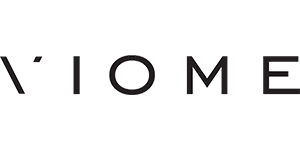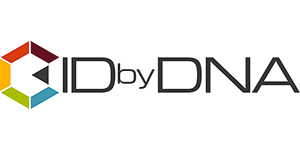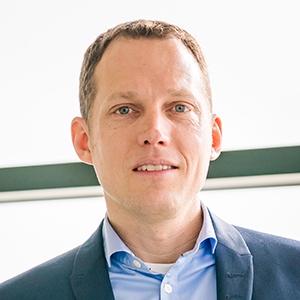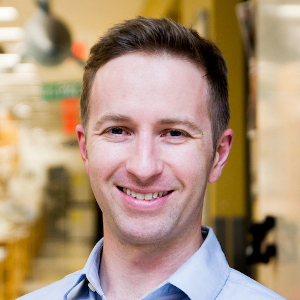The PMWC 2020 Microbial Profiling Showcase will provide a 15-minute time slot for selected companies in the Microbiome and Pathogen ID fields. The human microbiome is composed of a wide variety of microorganisms that are essential for maintaining human health and preventing disease. Research in this area is accelerating due to the rapid development in genome sequencing technologies. This showcase will present some of the leading companies in microbial profiling and pathogen identification.
Confirmed Presenting Companies:
Speaker Profile
Biography
Naveen Jain is an entrepreneur and philanthropist driven to solve the world’s biggest challenges through innovation. A man who knows no limits, Naveen pushes big dreams into action, spurring massive cultural and technological change. His audacious vision and magnetic personality continually inspires others to follow what feels impossible. The founder of Viome, Moon Express, World Innovation Institute, iNome, TalentWise, Intelius, and Infospace, Naveen sees beyond the current business and technological landscape, creating companies that make a true impact. Naveen Jain has been awarded many honors for his entrepreneurial successes and leadership skills including “Ernst & Young Entrepreneur of the Year”, “Albert Einstein Technology Medal” for pioneers in technology, “Humanitarian Innovation Award” at the United Nations, “Distinguished Global Thinker Award” by IILM, “Most inspiring Entrepreneur” by Andaaz TV, “Most admired Serial Entrepreneur” by Silicon India, “Top 20 Entrepreneurs” and “Lifetime Achievement Award” for the leadership in the technology industry and support of other entrepreneurs by Red Herring.
Speaker Profile
Biography
Malcolm Kendall has over 28 years of operational management, entrepreneurial, venture capital investment and leadership experience, the majority of which has been focused on company creation and building value in technology and biotechnology companies. Before founding Microbiome Insights, he was the co-founder and CEO of Indel Therapeutics Inc., a Vancouver-based biopharmaceutical company dedicated to developing new drugs to address the global health crisis caused by antibiotic resistance. Prior to this, Malcolm was an investment professional with life science focused venture capital firms MDS Capital (now Lumira Capital), BioVista Capital (now Hatteras Venture Partners) and Intersouth Partners. Before entering business, he served in the U.S. Army where he honed his leadership skills as an Infantry and Special Forces officer. Malcolm has been an advisor and board member to numerous companies and organizations and is currently a member of the board of directors of Semios BIO Technologies, a mentor for the entrepreneurship@UBC program and an adjunct professor at the MBA MOT program at Simon Fraser University. He received his undergraduate degree from Washington and Lee University and an M.B.A. from the Kenan-Flagler Business School at the University of North Carolina.
Talk
A Microbiome-Based Test For Inflammatory Bowel Disease
The microbiome plays a role in the pathogenesis of Inflammatory Bowel Disease (IBD). Clinical utility of a microbiome-based test for IBD will be determined by its correlation to clinical endpoints and its effectiveness for monitoring disease. Microbiome Insights is developing a novel microbiome-based test to monitor disease activity in IBD.
Speaker Profile
Biography
Robert Schlaberg is the Chief Medical Officer of IDbyDNA as well as an Assistant Professor of Pathology at the University of Utah School of Medicine and a Medical Director at ARUP Laboratories. His research is focused on next-generation sequencing-based infectious disease diagnostics and is supported in part by the Bill & Melinda Gates Foundation. Robert co-developed Taxonomer, the metagenomics data analysis platform, utilized by IDbyDNA as its central technology. Robert received Medical degrees from the Julius-Maximilians-University in Wuerzburg, Germany and a Masters of Public Health from Columbia University where he also trained in clinical pathology and served as Chief Clinical Pathology Resident. Robert is a board certified Clinical Pathologist and Medical Microbiologist.
Microbial Profiling Showcase:
IDbyDNA
IDbyDNA is a global leader in metagenomics, microbial genetics and data analytics. Leveraging advanced genome science and cutting-edge search technologies we are leading the transformation to bring precision medicine to infectious disease diagnosis.
Speaker Profile
Biography
Dan Knights develops computational methods for studying the human microbiome, and his lab at the University of Minnesota runs Microbiome studies in humans to learn more about the connection between lifestyle, diet, the microbiome, and human health. His academic research in computational methods established the use of machine learning on microbiome data; his work on the human microbiome demonstrated that immigration to the US causes rapid Westernization of the human microbiome and that these changes are related to obesity. In 2015, he was named a McKnight Land-Grant Professor by the University of Minnesota. In 2016, Dan co-founded CoreBiome, a big-data sequencing and analysis provider that has now generated and analyzed tens of thousands of shotgun metagenomics profiles.
Microbial Profiling Showcase:
CoreBiome
CoreBiome is a microbiome sequencing and analysis provider focused on big data and scalable shotgun sequencing. CoreBiome has now generated and analyzed tens of thousands of shotgun metagenomics profiles.
Powering Microbiome Discovery With Big Data
Many published microbiome studies are under-powered or low-resolution, while actionable microbiome discovery requires careful study design, larger sample sizes, and high-resolution data. Shotgun sequencing provides far higher resolution than 16S sequencing, and with advances in informatics and molecular methods, it is now possible to perform shotgun sequencing instead of 16S sequencing on large epidemiological studies. This talk describes new technologies that enable scalable shotgun sequencing and applications of those studies to derive insights into what drives human microbiome variation.















